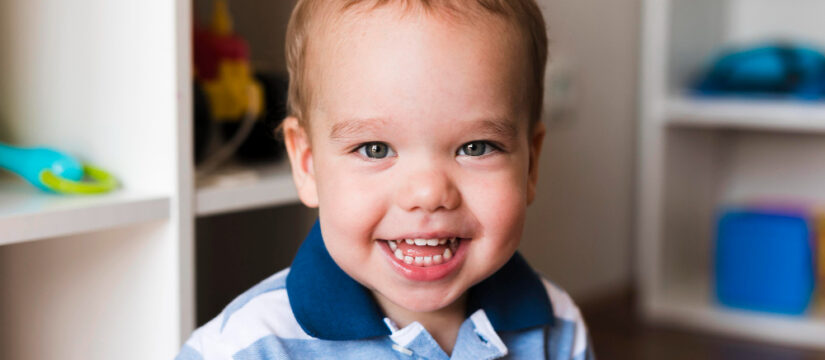
Table of Contents
As your baby grows, they will undergo many physical changes as they become more robust and independent. Babies are expected to begin teething between six and twelve months of age. This can be uncomfortable for your child, so attentive parents will ask what to expect beforehand.
Once started, the teething process progresses at a predictable rate, with the lower central incisors often appearing first. However, it’s common for the upper central incisors to secure their head start. As this slightly deviates from the usual expectation, you may worry if your child’s teeth are growing incorrectly, if that could cause further issues, and what (if anything) you need to do about it.
What if my baby grows their upper teeth first?
Generally, there is no distinct cause for alarm if your child’s upper central incisors grow first.
While the standard timeline suggests that the lower, then upper central incisors break through, followed by both sets of lateral incisors, molars, canines, and second molars, a slight variation will be considered normal – provided their teeth development is healthy and progresses at an incremental rate. It’s important to remember that each baby will have their own slightly altered teething timeline, as development, while following a distinct pattern, doesn’t have to be “perfect” to be “good and healthy.”
Are there any possible downsides to my baby growing their upper teeth first?
Some parents may worry if the order of central incisor growth will impact how their infant teeth, chews, or learns to bite. Thankfully, this is not much of a factor for babies, as they tend to explore with their mouths instead of biting and chewing for functional purposes at this stage.
When your baby develops a complete dental environment, they begin to chew and bite for practical purposes, and that’s when strength is developed. The initial teething period is all about the healthy presentation of teeth.
What about my baby learning to talk and their dental hygiene?
A common reason many parents worry, “What if my baby grows their upper teeth first?” is most often because unexpected dental issues can sometimes cause speech issues – we see this in those who have lost teeth or muscular function around the jaw. Thankfully, teething babies rarely rely on their teeth to enunciate complex words in much fewer sentences, and so provided the rest of their dental suite grows as expected, there should be no problem.
What are my next steps?
Through every stage of your baby’s teething process, your pediatrician or dentistry specialist can assess their dental environment’s proper growth and health. In some cases, teeth can grow at suboptimal angles, or they may not be as strong as desired, in which case your health professional can recommend a better course of treatment. Of course, you can also address any concerns about the order of your child’s dental growth to be relieved by a present, professional voice able to determine your baby’s growth with specific insight. At Smile Perfectors, we cherish our time helping families to have solid dental health.

